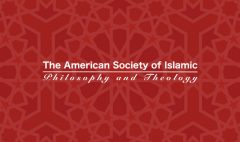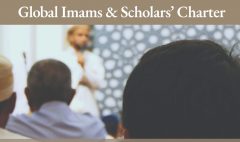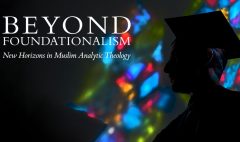Understanding Sharī`a – Past Perfect, Imperfect Present (USPPIP project)
August 2, 2017 2024-03-06 11:42Understanding Sharī`a – Past Perfect, Imperfect Present (USPPIP project)

Understanding Sharī`a – Past Perfect, Imperfect Present (USPPIP project)
Understanding Sharī`a – Past Perfect, Imperfect Present (USPPIP project)
Funded by HERA (Humanities in the European Research Area)
Under the “USES OF THE PAST” Program
Date: 1 September 2016 – 31 October 2018
Project Website: www.usppip.eu
Much modern Muslim thought, particularly around legal issues, is characterized by an emulation of past perfection, and a dissatisfaction with an imperfect present. Muslim communities and movements (be they radical and violent or liberal and progressive) usually frame their programs for change as attempts to preserve, revive and recapture the belief and practice of the past Muslim community. From terrorism which claims to be Islamic (most recently the emergence of Islamic State and the Charlie Hebdo attacks) to the European Sharī`a law debates, the need for a greater understanding of the pivotal role of historical precedent in the construction of contemporary Muslim thinking is clear. It is this need the Understanding Sharī`a Project aims to address.
The participants, all internationally recognized experts in the study of Islamic law, will create a research base and draw on an international networks of expertise. They will also engage in activities whereby this knowledge can be disseminated to a wider, non-academic audience (including both those within and outside of the Muslim community). Understanding the importance of the perceptions of the past, and the authority drawn from precedent for current Muslim thought and practice is too often misunderstood within the academic community (viewing it sometimes as ‘blind imitation’ of the past), but more crucially amongst policy makers and the general public. This project aims to make a contribution to raising the level of public debate around these issues by emphasizing the creative and future-orientation of modern Muslim understandings of the past.
This two year project addresses how Muslim legal scholars have used the idea of a perfect past to try and change the imperfect present. Islamic legal thought has always stressed the importance of previous example – legal scholars often refer to the “example of the Prophet” or “established tradition or custom” to justify a rule. This project focuses on these uses of the past, and tries to show how they are changing and how the past is being used to support legal change and reform in contemporary Muslim discourse.
Funded by HERA (Humanities in the European Research Area) under their “Uses of The Past” program, the project team includes scholars in the Universities of Exeter, Leiden, Göttingen and Bergen and examines the uses of the past in the areas of violence, custom, gender and the state.
The project is a collaboration of four institutions: the Universities of Exeter, Leiden, Göttingen and Bergen, and in each institution an established academic (Gleave, Buskens, Schneider and Vikør) works with a postdoctoral researcher; they meet for both academic and public events every six months (with each institution hosting at least one event), involving both academics and practitioners. Project members at each institution will explore one theme of Islamic law in the modern period; Exeter will focus on violence, Leiden on custom, Göttingen on gender and Bergen on the state. Particular attention will be paid to the uses of the past; the ways in which the Islamic legal tradition is invoked, contested and appealed to in modern argument, how it is presented and whether patterns are discernible in its deployment and whether these patterns shift over time.
Project Lead
- Prof. Robert Gleave, University of Exeter
Events
- Governance and Violence in Islamic Law Workshop | November 24, 2017
- Maslaha, Siyasa and Good Governance: Shari’a and Society Workshop | April 19-20, 2018
- Islamic Law and Sex/uality Workshop | June 22, 2017
- Customs, Culture, Shari’a and National Law | February 24-25, 2017
- Ocean of Law II: Islamic Legal Crossings in the Indian Ocean World | December 12-14, 2016
- Workshop on the Imamate traditions in South Arabia | November 22, 2016
Contacts
- Email: usppip@exeter.ac.uk
- Website: http://www.usppip.eu/








